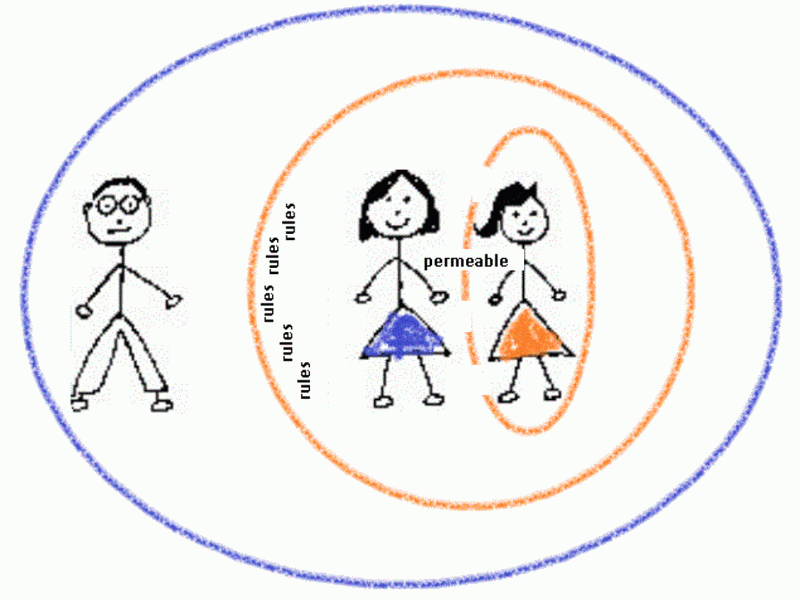16 Signs Your Childhood Was Shaped By A Narcissistic Parent
There’s no elegant way to dress this up—growing up with a narcissistic parent messes with your head.
You spend years untangling what was real, what was manipulation, what you wanted, and what you were told to want. Some days, you wonder if you’re just making excuses. Other days, you can still hear their voice in your head, louder than your own.
This isn’t just about having a difficult parent. It’s about growing up in the shadow of someone whose needs eclipsed yours, every darn time.
If you see yourself in these signs, you’re not alone. You’re not broken. And you’re not imagining it.
1. Conditional Love and Approval

When love feels like a prize you have to win, childhood turns into an endless contest. Did you ever catch yourself tallying up how many times you made them proud, versus all the ways you fell short? That scoreboard never left my mind.
You might remember the chilling silence after you brought home a B instead of an A, or the way a hug only came after you did something brag-worthy. Affection wasn’t free. It was payment, and the invoice was always due.
Tal vez you learned to shrink and mold yourself into whatever version they preferred that day. There’s a raw ache in knowing you could never just be—you had to perform. That’s not love. That’s a transaction, and it changes how you trust everyone else.
2. Manipulación emocional

Ever felt twisted up inside, like you always apologize but you can’t figure out what for? Narcissistic parents are pros at emotional manipulation—they can turn any situation into your fault before you even blink.
Gaslighting isn’t just a buzzword, it’s real. Maybe you got told, “You’re too sensitive,” after crying, or that you “misremembered” something you know happened. Eventually, you stopped trusting your own memory.
And then there’s guilt. The kind that makes you feel selfish for wanting basic things, like space or kindness. This leaves you questioning your reality. It takes years to believe yourself again.
3. Lack of Empathy

You remember the tears, but not the comfort. That’s the hallmark of a parent who simply doesn’t get it—or doesn’t care to. Your pain barely registered, and to ask for support felt pointless.
When you scraped your knee or lost your best friend, their reaction was nothing more than a dismissive shrug. Sometimes, they even seemed annoyed by your feelings—as if your sadness was an inconvenience they had to bear.
Years later, you still hesitate to share your struggles. Empathy was a language your home never taught you. So, you learned to edit yourself, suppress the messier emotions, and handle heartbreak on your own.
4. Expectativas poco realistas

Some parents want the best for their kids. A narcissistic parent demands perfection, no matter the cost. Maybe you still hear their voice whenever you fall short, relentless and sharp.
Did you ever get praised for working hard, or just for being the best? There was no credit for effort—only for results. If you stumbled, you felt like you’d ruined everything.
That pressure settles deep in your bones and turns every new challenge into a test you’re terrified to fail. You’re exhausted from chasing goals that were never yours. That’s why it takes years to realize that being human is enough.
5. Boundary Violations

Privacy wasn’t a right, it was a privilege you never really got. Maybe you had a diary that mysteriously disappeared, or your phone “accidentally” got checked more than once.
You grew up with your space constantly being trespassed. Nothing was off-limits—not your room, not your secrets, not your inner life. It taught you that boundaries were flimsy, not worth defending.
Now, you struggle to say no, or to carve out time that’s just yours. It makes sense. Respect for your autonomy was never modeled—so you had to learn it the hard way.
6. Perfectionism

You weren’t afraid of mistakes—you were terrified of them. This wasn’t ambition, it was survival. If you failed, even once, the disappointment in their eyes cut deeper than any punishment.
Did you ever lie awake replaying every error, every “almost” but not quite? I did. That anxiety never really lets you rest, not even for a weekend.
Perfectionism becomes a shield you use to avoid criticism. You chase flawless results, not because you want to—but because you feel like you have to. Mistakes still feel dangerous, long after you’ve left home.
7. People-Pleasing Tendencies

You know that tight feeling in your chest when someone seems upset, even if it’s not about you? People-pleasing is the default setting after you learn that your worth depends on keeping others satisfied.
With a narcissistic parent, conflict is something to avoid at all costs. You became a master at reading moods, smoothing things over, and sacrificing your own needs to keep the peace.
At times, you say yes when you mean no, just to sidestep discomfort. That’s not kindness—it’s a survival tactic. It takes guts to unlearn it.
8. Difficulty with Self-Identity

Who are you, really, when you’ve spent years as someone else’s mirror? These types of parents want you to reflect their ideals, not develop your own.
Maybe you tried on different versions of yourself and hoped one would finally fit. But there was always a nagging sense of emptiness, like your life was missing a central piece.
You grew up learning to read their cues instead of your own. Sorting out your real identity feels confusing—sometimes even scary. But discovering who you are now is an act of rebellion, and courage.
9. Chronic Self-Doubt

It wasn’t something that crept in—it was planted there, watered, and cultivated by someone who should have helped you grow. You learned to second-guess every choice, big or small.
The smallest mistake turned into a crisis of confidence. Even when you succeeded, you wondered if it was luck or if someone would find out you didn’t deserve it.
This means you rarely trust your own instincts. It’s exhausting to always seek validation you should have gotten for free. If you want to overcome it, start by trusting yourself, even when it feels impossible.
10. Fear of Failure

Every challenge becomes a tightrope, and you’re petrified of falling. What if you disappoint them again? What if you just…aren’t enough?
Narcissistic parents make you believe failure is catastrophic. Not an opportunity to learn, just another reason to feel ashamed. You even avoid trying new things, just to sidestep the risk of messing up.
That fear lingers. Even now, when no one’s watching, it’s hard to let yourself stumble, believe me. You need to learn that mistakes don’t end the world—they’re just part of being human.
11. Difficulty Setting Boundaries

Diciendo “no” shouldn’t feel like a crime, but for you, it did. Maybe you learned early on that your needs didn’t count, or that pushing back would only make things worse.
Now, setting boundaries feels unnatural—like you’re breaking an old, unspoken contract. You’re used to putting yourself last, so asserting your limits stirs up guilt and anxiety.
Every time you fight for your own space, it’s an act of bravery. Boundary work is slow, but every small win matters. You’re allowed to say no.
12. Overly Self-Critical

Your harshest critic always lived in your own head. The voice that nitpicks every flaw, finds fault in every effort and never lets you off the hook.
Growing up, you absorbed every critique, every withering look, and now you replay them on a loop. Self-kindness feels foreign, almost suspect.
You hold yourself to impossible standards because anything less feels like failure. The journey to self-compassion is rocky, but it starts with challenging that internal monologue—one small act of grace at a time.
13. Co-Dependent Relationships

Love shouldn’t be a lifeline, but that’s what it becomes when your childhood taught you to meet everyone else’s needs first. Co-dependency is sneaky. It wraps itself around your relationships before you realize it.
Maybe you pick partners who need fixing, or you lose yourself trying to keep the peace. You crave closeness, but it comes with strings attached—your happiness depends on theirs.
It’s a hard pattern to break, but noticing it is the first step. You learn that being whole on your own is possible—and necessary.
14. Sense of Not Being Heard

Have you ever felt invisible in your own home? You could shout, whisper, or offer your best idea—none of it really landed. Your words bounced off walls and never quite made it to the person who mattered most.
Parents like these used conversations as monologues. Your role was to listen, not to be heard. It’s no wonder you started to doubt if your opinions mattered at all.
That silence still echoes. But every time you speak up now, you reclaim a bit of the space you were denied.
15. Emotional Sensitivity

You probably got told you were “too sensitive” more times than you can count. But here’s the thing: sensitivity isn’t a flaw. It’s what happens when you grow up decoding every mood, every sigh, every unspoken rule.
Your radar for tension became fine-tuned—sometimes painfully so. Other people’s emotions hit you harder because you were trained to notice, adapt, and react.
This sensitivity can be a gift, but it also leaves you raw. Learn to protect your energy, without shutting down your heart. It’s a skill worth mastering.
16. Difficulty with Intimacy

Trust isn’t automatic when you’ve learned love comes with conditions. Getting close to someone feels risky, like you’re always bracing for the other shoe to drop.
You want connection, but part of you holds back—afraid of being exposed, vulnerable, or disappointed. That guardedness isn’t coldness, it’s self-defense, built up over years of having your feelings weaponized.
Intimacy means letting yourself be seen, flaws and all. It takes time to believe someone won’t use your openness against you. That’s okay. You’re allowed to go slow.







